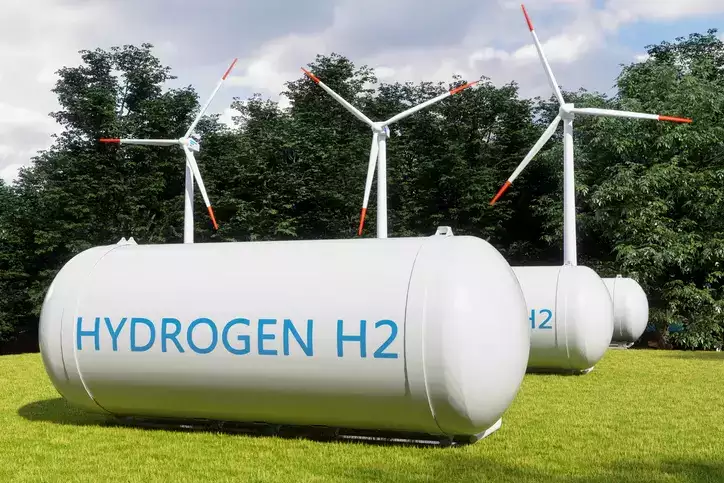In a significant move to propel the growth of green energy initiatives, the Indian government has announced a complete waiver of inter-state transmission system (ISTS) charges for offshore wind, green hydrogen, and ammonia projects for a period of 25 years. The Ministry of Power issued a statement stating that the waiver would apply to projects commissioned until December 31, 2032.
The objective of this decision is to facilitate the wider implementation of offshore wind energy initiatives, promote the expansion of green hydrogen and green ammonia projects, and encourage the uptake of renewable energy from energy storage system projects, as highlighted by the ministry.
The notification by the Ministry of Power specifies that offshore wind power projects commissioned on or before December 31, 2032, will enjoy a complete waiver of ISTS charges for 25 years from the date of commissioning. For offshore projects commissioned from January 1, 2033, graded ISTS charges will be applicable. This distinguishes offshore wind projects, treating them separately from other wind energy projects.
Additionally, the government has granted a complete waiver of ISTS charges for 25 years from the date of commissioning for green hydrogen and green ammonia production units that utilize renewable energy (commissioned after March 8, 2019), pumped storage systems, battery storage systems, or any hybrid combination of these technologies. The waiver will be applicable to projects commissioned on or before December 31, 2030. After that date, graded transmission charges will apply. This extension effectively extends the waiver’s applicability from June 30, 2025, to December 31, 2030.
To promote the development of pump storage plants (PSP), the criteria for availing a complete waiver of ISTS charges for PSP projects have been revised. The waiver will now be linked to the date of project award instead of the date of commissioning. This change will be applicable when construction work is awarded on or before June 30, 2025.
The ISTS, or Inter-State Transmission System, plays a crucial role in the transport of electricity generated from various sources across state boundaries through grid transmission lines. As India aims to increase the share of non-fossil fuels-based electricity to at least 40% or 500 GW by 2030, the future of renewables largely depends on the health of electricity distribution grids, with ISTS playing a vital role in this transition.
The waiver of ISTS charges for renewable energy projects is expected to be a game-changer, accelerating India’s adoption of clean energy and contributing to the long-term energy security of the country. This move will also promote ecologically sustainable growth and enable companies, regardless of their geographical location, to reduce their overall carbon footprint by transitioning to renewables. By procuring renewable energy through ISTS, companies can benefit from cost-effective energy solutions, improved energy security, enhanced corporate reputation, and access to Renewable Energy Certificates (RECs) to declare their carbon offset.
With the government’s support and these waivers, the Indian renewable energy sector is poised for rapid growth, paving the way for a cleaner and more sustainable future.








